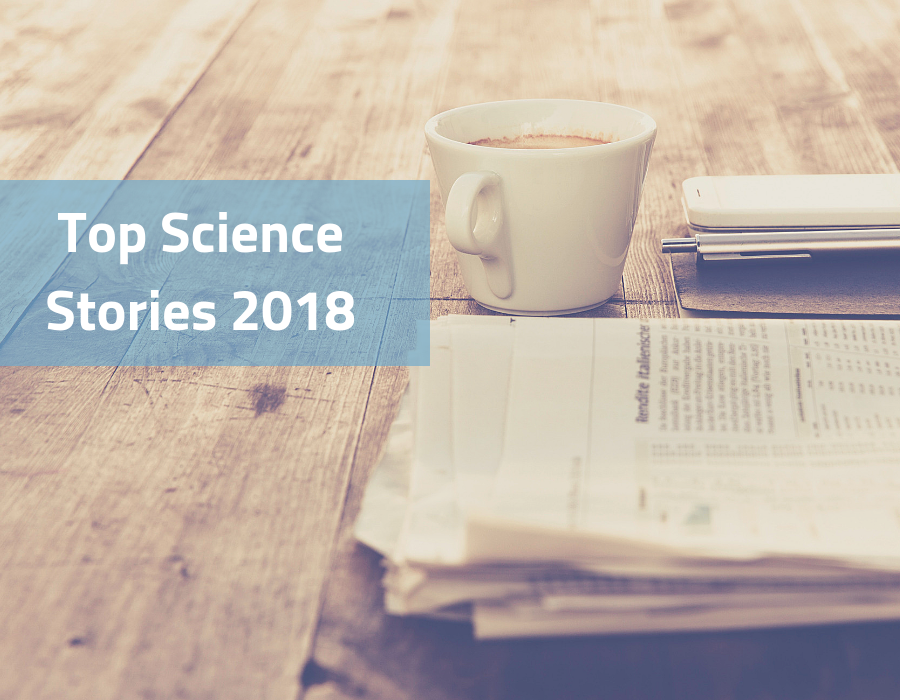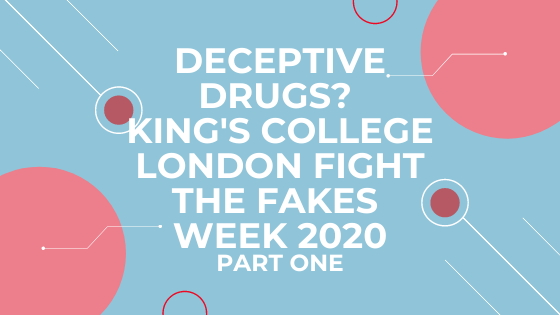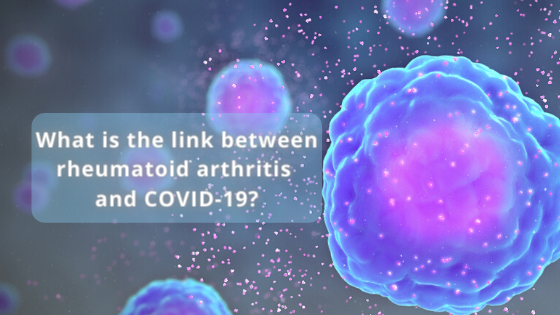Roisin Conneely
Happy New Year! 2019 is just around the corner, new year’s resolutions have been made, and the mince pies have just about run out. This has been a big year for us, having started Seeking Science back in March and seeing the blog grow so much faster than we could ever have imagined! As 2018 draws to a close, we take a look back at some of the biggest science stories to hit the headlines this year. Who knows what discoveries will be made by this time next year…
Plastic Planet

2018 was the year that the planet finally seemed to wake up to the problem of plastic pollution. Helped along by Blue Planet II’s final episode late last year, along with an iconic National Geographic cover (pictured left) showing plastic as, literally, the ‘tip of the iceberg’, in the last 12 months we’ve seen plastic being discussed a lot more in the public eye. Only this week it was announced that the 5p plastic carrier bag charge in shops will be increased to 10p, which should hopefully bolster the positive effects that the charge has already had on reducing plastic waste.
And it’s not just the sea threatened by plastic; in October, it was reported that traces of microplastics had been observed in human waste for the first time, meaning that we too, are consuming plastic. It couldn’t be any clearer that we are at crisis point in our ever increasing production of plastic, but hopefully the push for change will continue into 2019 and beyond.
Designer Babies?
In November, Chinese scientist He Jiankui shocked the world by announcing the birth of twin baby girls who had had their DNA edited in the womb, through a technique known as CRISPR. He claims that he and his team used CRISPR to disable the CCR5 gene, leaving the babies resistant to HIV infection. However, the announcement has faced criticism over the way the news was released, as there still hasn’t been any independent verification of the findings. Questions still remain over the ethics of the advancement, particularly over whether removal of a functioning CCR5 gene may lead to adverse effects for the babies in later life.
Read more on CRISPR in our guide here, plus our review of Jenniffer Doudna’s Royal Society talk on the technology
Art imitates life? Sci-fi in 2018
Science-fiction is a valuable aspect of science, in our humble opinions, and this year, one of the world’s most famous sci-fi shows proved its power by unveiling Jodie Whittaker in its lead role; the first female Doctor. Reactions to the casting were varied to say the least, with several so-called fans proclaiming they would stop watching if the infamous Time Lord became a Time Lady. Their loss, frankly, as we think Jodie has done a fantastic job on Doctor Who, as do critics, who praised her performance. We hope she has inspired a generation of little girls who can now grow up with a female STEM role model to show them that science, and sci-fi, isn’t just a boys club anymore.

Fittingly, Jodie stepped into sci-fi’s most iconic role in the year that also marked the 200th anniversary of Frankenstein, arguably the worlds first work of science fiction, which also happened to be written by a woman. Mary Shelley published the novel in 1818, the story of scientist Victor Frankenstein, who uses electricity to reanimate a creature made from bits and pieces of combined cadavers. The impact of the book can hardly be overstated, and we like to think that if Mary could see the impact that her work has had on the world of science fiction, with a woman as the face of one of the genere’s greatest franchises, she’d be a teeny bit proud.
(Not) Having a whale of a time in Japan
On 26th December, Japan announced its withdrawal from the International Whaling Commission (IWC), and that it would be resuming commercial whaling. Whale hunting will resume in the country on June 30th 2019. The consumption of whale meat is an ancient tradition in Japanese culture, hence the topic is an emotive and controversial one. The IWC agreed to a moratorium on whale hunting in 1985, but did allow for exceptions which led to Japan yielding over 20,000 hunted whales since the ‘ban’. So will the withdrawal make much of a difference to whale populations after all? Only time will tell…

Farewell, Stephen Hawking

In a saddening blow to the scientific community, and the world at large, Stephen Hawking died this year at the age of 76. He had only been given months to live when diagnosed with motor neurone disease at the age of 22, but went on to defy the odds to become one of the world’s most respected physicists and public figures. His numerous contributions to science include the discovery of Hawking radiation; the phenomenon whereby black holes release energy before fading into nothingness. He was also famed for his sense of humour and appeared in TV shows such as Red Dwarf and The Simpsons. To end this article, and the year, we’ll leave you with one of his most memorable quotes:
“One, remember to look up at the stars and not down at your feet. Two, never give up work. Work gives you meaning and purpose and life is empty without it. Three, if you are lucky enough to find love, remember it is there and don’t throw it away”




